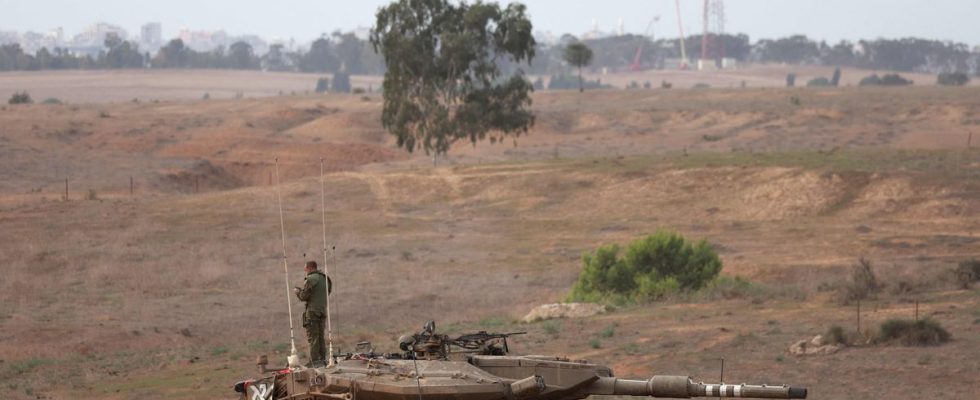We are approaching fifty days of conflict and the two protagonists have just agreed on an essential subject. Israel and Hamas reached a deal overnight from Tuesday to Wednesday including the release of at least 50 hostages held in the Gaza Strip since the deadly attacks of October 7. In exchange, 150 Palestinian prisoners will be released and a four-day truce has been decided in the Palestinian territory, “with the possibility of extension”.
What will the release of the hostages change on a military level? Does this truce portend a reduction in the intensity of the conflict? Can Israel decide to limit or stop the bombings? 20 minutes takes stock with Frédéric Encel, doctor in geopolitics, lecturer at Sciences po Paris and author of The Ways of Power (Odile Jacob edition).
Why is this hostage release operation taking place now?
According to our expert, this pause is part of “cross pressure” exerted on Hamas and Israel. On the Hamas side, Qatar, whose Minister of Foreign Affairs announced on X one of the terms of the truce, pushed to successfully carry out “mediation”. “Qatar is one of the most loyal supporters of this Palestinian Islamist movement, it generously provides for its enrichment and its existence. Hamas could not continue to quibble, the credibility of its Qatari ally was at stake,” specifies Frédéric Encel.
On the Israeli side, the injunctions of Washington, which mediated with Qatar and Egypt, ended up working on Israel. According to CNNthe release of two American hostages from Gaza on October 23 proved to the administration of President Joe Biden that the communication channel with Hamas, via Qatar, was effective.
With this release of hostages, will the two camps change their military strategy?
Part of the response has already been delivered by Jonathan Conricus, spokesperson for the Israeli armed forces, on CNN. “The Israeli government, Israeli army and security forces will continue the war to return all abductees, eliminate Hamas and ensure that there is no further threat to the State of Israel from Gaza.”
The release of 50 of the 240 hostages kidnapped on October 7 by Hamas will not satisfy the Israeli army, which has militarily invested the Gaza Strip. The agreement is not a ceasefire, but a simple truce of a few days. “The break can certainly help Hamas to reorganize itself, but Israeli determination is total,” says our specialist. The break will also allow Israeli soldiers to rest and glean additional information for subsequent events. Because the war will continue in four days. »
“It is not the truce that will cause a change in strategy,” confirms Christophe Gomart, general and former director of French military intelligence interviewed by The Parisian.
Does this agreement play more into the hands of one of the two camps?
“Given its strike force, Israel could have afforded not to grant a break,” judges our specialist. But for the leaders, the mission consists of satisfying a very divided public opinion, which wants to obtain “the release of all the hostages” and “the eradication of Hamas”.
“Benyamin Netanyahu is criticized for his incompetence before October 7. Part of the public sees this pause as a weakness, especially since he had promised not to take a break,” explains our expert, especially since Israel is caught in an “existential dilemma” by releasing prisoners. On the military side, the information given by the released hostages could help the armed forces to target their searches for the rest of the hostages, notes a military expert with the Parisian.
Despite this agreement, both camps remain on guard. This Wednesday, the bombings had not stopped in the Gaza Strip. “We confirm that our hands will remain on the trigger and that our triumphant battalions will remain on the lookout,” declared Hamas, whose acceptance of the agreement may reflect a form of “weakness” in the face of its Qatari partner, according to our specialist .

